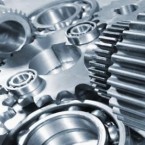Course Code: 3

The Department of Mechanical Engineering of VIVA Institute of technology commenced in 2009. The department has been running with modern infrastructure and well-equipped laboratories, computational facilities with state of the art hardware and software resources. A team of well qualified and experienced faculty of the department impart knowledge to the students in both basic and real world industrial aspect of Mechanical Engineering courses by adopting simple as well as the latest teaching tools.
The academic programs are designed to provide industry student interaction which includes frequent industrial visits for our students to expose them to real life engineering challenges and opportunities. Students are exposed to cutting edge technologies through industrial guest lectures, industry sponsored projects and industrial internships. Students benefit from association with professional organizations such as ISHRAE, IIIE, SAE. The curriculum for each programs is continuously updated to keep it in sync with needs of industry and current research developments. The department takes keen interest in inculcating an attitude and temperament for practicing ethics in the mind of students and preparing them for being part of collective efforts for nation building.
Vision
-
To empower students from diverse backgrounds by providing quality
education in the field of mechanical engineering.
Mission
Programme Educational Objectives (PEOs)
Programme Specific Outcomes
Engineering Graduates will be able to
Programme Outcomes
Engineering Graduates will be able to:
Apply knowledge of mathematics, science, engineering fundamentals and an engineering specialization to the solution of complex engineering problems.
Identify, formulate, review research literature, and analyze complex engineering problems reaching substantiated conclusions using first principles of mathematics, natural sciences, and engineering sciences.
Design solutions for complex engineering problems and design system components or processes that meet the specified needs with appropriate consideration for the public health and safety, and the cultural, societal, and environmental considerations.
Use research-based knowledge and research methods including design of experiments, analysis and interpretation of data, and synthesis of information to provide valid conclusions.
Create, select and apply appropriate techniques, resources, and modern engineering and IT tools including prediction and modeling to complex engineering activities with an understanding of the limitations.
Apply reasoning informed by the contextual knowledge to assess societal, health, safety, legal and cultural issues and the consequent responsibilities relevant to the professional engineering practice.
understand the impact of the professional engineering solutions in societal and environmental contexts, and demonstrate the knowledge of, and need for sustainable development.
Apply ethical principles and commit to professional ethics and responsibilities and norms of engineering practice.
Function effectively as an individual and as a member or leader in diverse teams, and in multidisciplinary settings.
Communicate effectively on complex engineering activities with the engineering community and with society at large, such as, being able to comprehend and write effective reports and design documentation, make effective presentations, and give and receive clear instructions.
Demonstrate knowledge and understanding of the engineering and management principles and apply these to one’s own work, as a member and leader in a team, to manage projects and in multidisciplinary environments.
Recognize the need for, and have the preparation and ability to engage in independent and life-long learning in the broadest context of technological change.
